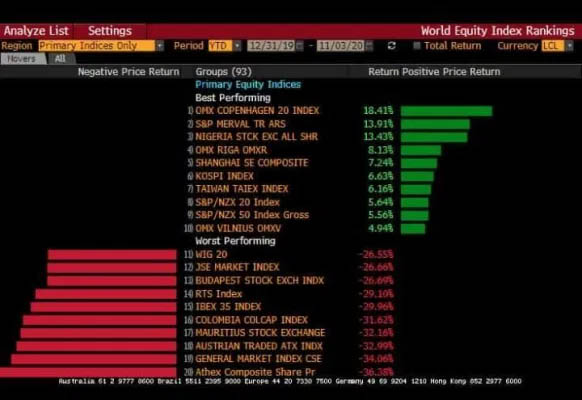Nigerian Equities Market Faces Concerns Amid Bank Recapitalisation

The Nigerian equities market experienced its third consecutive weekly decline as investors grapple with the potential effects of the recently announced bank recapitalisation by the Central Bank of Nigeria (CBN).
Thank you for reading this post, don’t forget to subscribe!
Notably, Tier-1 banking stocks such as First Bank Nigeria Holdings (FBNH), Guaranty Trust Company (GTCO), Access Corporation, and Zenith Bank witnessed significant selling pressure, with declines ranging from 4.5% to 14.2%. Additionally, profit-taking in MTN Nigeria contributed to the market downturn.
As a result, the Nigerian Exchange Limited (NGX) All-Share Index (ASI) fell by 1.1% week-on-week (WoW), leading to a moderation in the Year-to-Date return to 38.3%. Market capitalisation also decreased by over N623 billion WoW, closing at N58.497 trillion.
Despite the overall decline, trading activity surged, with total traded volume and value increasing by 104.0% and 11.2% WoW, respectively. The Banking Index saw the most significant decline by 6.7%, followed by the Insurance Index at 0.9% and the Industrial Goods Index at 0.3%. However, the Consumer Goods Index gained 0.9%, while the Oil and Gas Index remained flat.
Analysts attributed the bearish trend to ongoing bank audit releases, corporate actions, and the impending recapitalisation plans. Stanbic IBTC and Wema Bank presented strong performance figures for the financial year ended December 31, 2023, but with relatively low dividend payouts compared to their earnings and share prices.
Stanbic IBTC reported a 62% increase in earnings and a 74% rise in profits, translating to earnings per share of N10.62 and a final dividend of N2.20. Wema Bank exceeded expectations, posting a top-line of N226.91 billion and a bottom line of N35.99 billion, resulting in an EPS of N2.80 and a dividend of 50 kobo.
Looking ahead, analysts anticipate a choppy trading pattern dominated by cautious sentiment, influenced by macroeconomic developments and corporate actions. They expect mixed and bearish sentiment amid positioning, profit-taking, and portfolio rebalancing in response to the banks’ recapitalisation plans and dividend announcements.





